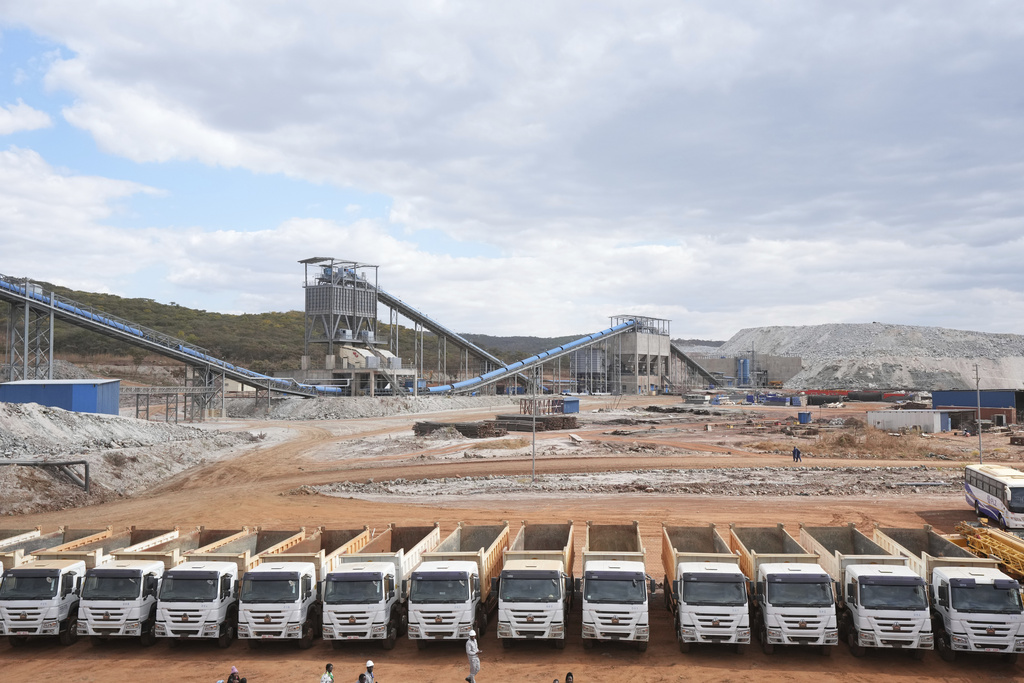Farai Maguwu has collected stories and testimonies throughout Zimbabwe for years. Some are heartbreaking, some disturbing, and each is accompanied by a call to action. The common thread is Chinese mining operations and their destructive effects on local communities and the environment.
Maguwu is the founder and executive director of the Centre for Natural Resource Governance, a Harare-based organization that seeks to defend, protect and support communities impacted by mining. His center summed up the state of affairs in a September 2024 report titled, “Investments or Plunder: An Analysis of Chinese Investments in Zimbabwe’s Extractive Sector.”
“Chinese mining ventures have led to widespread environmental degradation, disregard for the cultural rights of host communities, and, in many cases, the violation of the country’s labor laws, often with apparent impunity,” the report stated.
Complaints are mounting in Zimbabwe, where Chinese mining companies have a well-documented history of labor, environmental and human rights abuses. It’s the same story across the continent, as China has been accused of using its Belt and Road Initiative to tap into vast reserves of cobalt, copper, gold, lithium and other minerals.
More African countries are now drawing attention to the negative impacts of exploitative and illegal Chinese mining, as well as the environmental and socioeconomic problems and the surge in the local militancy and violence that have accompanied them.
“Looking at what is happening on the ground in Africa right now — we see China’s imperialism, we see human rights and the environment both at high risk, and we see rampant corruption and a lack of good governance,” Amani Matabaro Tom, a fellow at the Harvard Kennedy School’s Carr Center for Human Rights Policy, wrote in January.
Chinese-owned companies account for an estimated 90% of Zimbabwe’s mining industry, according to Maguwu. Several have been implicated for labor and rights abuses, displacement of local communities and environmental abuses, including water and soil pollution and habitat loss.
“In 2023 alone, [Chinese] investments in Zimbabwe’s mining sector saw 121 investors contributing a staggering $2.79 billion,” Maguwu said.
A spate of violent confrontations in January that included two incidents in which Chinese nationals shot at Zimbabwean employees prompted a harsh rebuke from local trade unions. Justice Chinhema, general secretary of the Zimbabwe Diamond and Allied Minerals Workers Union, said workers at Chinese-operated mines are frustrated by “poverty wages” and being forced to work up to 14 hours a day.
“At least 95% of these workers at Chinese mines are working under short-term, fixed contracts with no medical care, pension or any other benefit needed when retiring,” he told Kenyan newspaper The East African. “Worse, they are intimidated and victimized for participating in any trade union activity or joining trade unions, making it difficult for them to collectively bargain for better conditions.”
The recent violence also brought to mind a 2024 viral video taken at Makanga mine in Bindura in which two Chinese nationals were seen hanging two local mine employees by their hands on the bucket of a front-end loader before it was lifted. Zimbabwean authorities took swift action and deported the men.
Maguwu said disputes over wages and violent episodes are not uncommon.
“At the heart of the increasing tension between Chinese nationals and Zimbabwean workers are poor labor practices, including meager wages, lack of contracts and gross human rights abuses,” he told The East African. “Needless to say, this is lawlessness as has never been witnessed in Zimbabwe’s mining sector since independence in 1980.”

